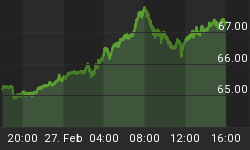Meredith Whitney appeared on "Bloomberg Surveillance" with Tom Keene and Scarlet Fu and said that the banking industry will lose 50,000 more jobs as companies shrink headcount to match revenue. She said, "I would argue the banks have not overfired and are really middle of the way through firing."
Whitney also said that PNC, US Bancorp and Wells Fargo are attractive stocks.
Whitney on how many more jobs will be lost:
"I think the industry goes for another 50,000. We're already close to 200 deep...Across the board. London is as miserable as New York."
On whether we've seen the end of the overhiring and overfiring spree on Wall Street:
"Everything goes in extremes and particularly in financial services. I hope I am around when the over hiring phase comes back to this market. But I would argue the banks have not over fired and are really middle of the way through firing. As I said, shareholders are demanding increased profitability. These banks are not earning their cost of capital and it's being reflected in their stock prices."
On the state of big banks:
"It's bad. If you look at the European banks reporting earnings today, it's a reflection of the same that the old way of making money for Wall Street for so many of the banks that became real Wall Street driven revenue machines is gone. That was driven by the unsexy world of housing and leverage. The world as deleveraging--at least the post-modern world is deleveraging. It puts real sustained pressure on revenues and the business models just have to shrink."
On whether Citigroup needs to cut the most:
"Citi certainly needs to cut, but they have reduced their mortgage portfolio dramatically. I would say Citi, Bank of America has made good progress. JPMorgan certainly. A lot of the traditional banks. Any of the regional banks have got to downsize dramatically. All of the European banks have to downsize dramatically. There has been no mortgage industry for the investment banking to ride of the shoulders of any more. So it is really the investment banking side that has to shrink dramatically."
On where those who are laid off will find jobs:
"The problem to date has been that those that have been laid off have been sitting on their couches because they do not want to take a downgrade in pay. They are not going back to work and the longer you are out of work, the more difficult it is to get a new job. My advice to them is take what you can get. It is very hard to transfer skills from a high-paying job...so recalibrate your expectations. "
On Sandy Weill's call last week to break up the big banks:
"I thought the reaction to that was surprisingly big. I appreciate the fact that it was a big turn for him, but he's been out of the industry for a long time. And most of the guys who are coming out--Dick Kovacevich, who was against breaking up the big banks--have really been out of the loop for a long period of time."
On whether Jamie Dimon wants to break up the banks:
"Of course he doesn't. Bigger is better for all of the guys who are in their seats. But it is very expensive. It takes a long time to integrate the banks. It will take a long time to break up the banks."
On whether Washington should get involved:
"I think shareholders are already getting in the way and demanding higher profitability. The big banks are effectively on their backs. Many big banks are trading at half of tangible book value. Shareholders are voting with their feet and saying get profitable or soon we're not going to buy your stock."
On whether there's a case for buying bank stocks right now:
"I think the case is valuation. I think that financials, for me anyway, it is a relative investment and it's a momentum investment. And the momentum is going against the fundamentals of these names. I would stay away. All that said, there are some great names. Some of the smaller names are chugging ahead...Like a PNC, a USB, even a Wells. If you look at these banks that look very expensive compared to the big banks--some investors are solely designated towards financials. They have to go somewhere. And these are the safe names, so just like U.S. treasuries, they will pay a premium for safety."
On what she'd like to see out Washington:
"I would like to see the government streamline regulation and actually back off of some of the capital requirements. The market is telling you how the banks should access capital. The market is pricing access to capital for the banks and the government is really adding insult to injury in the financial industry by layering on so much increased capital pressures and so much increased regulation. Dick Kovacevich said it better than anyone--it was not a lack of regulation that got us into this mess. It was a lack of enforcement of regulation that got us into this mess."
On whether she would take the position of Bob Diamond if Barclays were to call:
"No. I think that's a really scary position. But I think there's going to be a surprisingly excellent candidate that will take that position."















